The greatest video games repeat themselves
The rise of the remastering of master productions like ‘Resident Evil,’ ‘The Last of Us’ and ‘Final Fantasy’ stirs debate about creativity, artistic risks and economic power within the industry
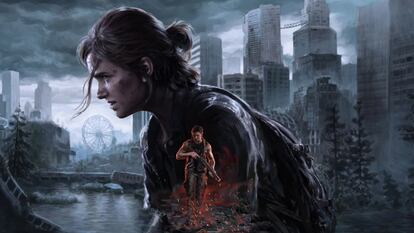
Naughty Dog is adored by millions of gamers. Masterpieces such as Uncharted and The Last of Us, in particular, are among the greatest of all time, because of the video game developer’s ability to blend entertainment with demanding and intriguing plots. However, there are also plenty of users who have been critical of the company. Most of them specifically for their boldness, using risky narratives or transgender or LGTBQ+ characters. Although recently it has also been reproached for the exact opposite: extreme conservatism, at least on the financial front.
Every time a new console has come onto the market, Naughty Dog has custom tweaked and repositioned its flagship title in stores, so much so that there are now more remasters (three) than original games (two). First, The Last of Us introduced the world to what video games were really capable of. But then it encapsulated the great paradoxes haunting the industry: originality or more of the same; talent or technology; a thirst for money or a thirst for art. From Final Fantasy VII to Resident Evil, sequels, remakes or renovations dominate releases and sales, to the delight of fans and those feeling nostalgic. Conversely, others fear that creative risk is falling by the wayside, at least in the case of blockbusters. Meanwhile, the independent sector is teeming with innovation, though there is also some uncertainty. So are these works of art, games or products? In this respect, The Last of Us suggests the right path: the best debates are complex.
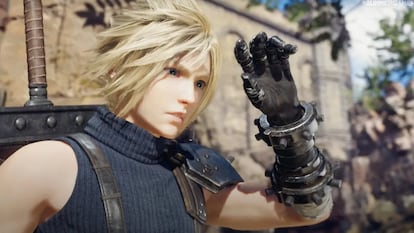
“There are many repetitions, too many. It clearly has an economic benefit,” says Sofía Francisco, author of several books on the sector. Almost all the great gaming releases of the last decades have already made a comeback, in some form or another: Silent Hill, Prince of Persia, Metal Gear Solid, Dead Space, The Legend of Zelda, Mass Effect and Crash Bandicoot. “The number of users, their average time spent playing and their expenditure have declined since 2021. At the same time, the most popular games, which may remain like that for a decade, unlike a book or a movie, have become bigger and more expensive. All this has made it difficult for many titles and developers to grow their audience,” says Matthew Ball, a renowned analyst in the industry.
In fact, prolonging or making a new version of something past is as old as culture itself, from Hallelujah to Shakespeare, from A Star is Born to The Price of Power. Virtually all of Hollywood’s biggest global blockbusters have originated from well-known franchises. And television is heading into the era of “safe ideas,” according to an article in Vulture last year. Video gaming may be just another instance. “There are formulas that tend to repeat themselves, especially with major productions: mechanics that seem to be copied from one game to another, sagas that have been running for decades. It is a way of reducing risk that is not exclusive to this industry,” argues Luis Oliván, at the helm of the Spanish company Fictiorama, creator of original games like The Fabulous Fear Machine or Do Not Feed The Monkeys, as well as the sequel to the latter. However, the trend does indeed feature distinct, even unique, elements in video games.
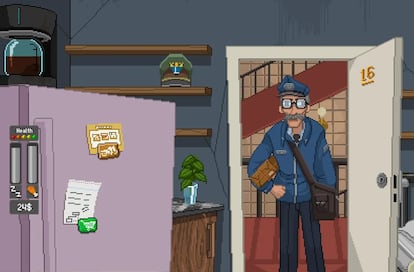
“The new versions here serve to preserve the original work,” Francisco stresses. This is because an old song or film is nearly always as available as its recent remakes. On the other hand, reviving an adventure designed for a console that is no longer in existence poses a series of challenges. However, at the same time, in video gaming, the new tends to bury the old more than in other fields. “Sometimes Nintendo leaves the remake in place and removes the original from its digital store,” explains Francisco. This phenomenon was also deplored by Wired magazine in June last year: who is going to travel to an archaic universe when they can visit a brand-new photorealistic version of it?
The report added a further reflection: “We don’t believe that over time literature will improve like science. Nor have advances in visual effects improved movies. Artistic quality does not have to go hand in hand with technology. Even so, in video games we tend to associate being new with being better.” Sometimes, the equation holds true: the second releases of Red Dead Redemption, Alan Wake and The Last of Us came many years after the originals, featuring equally or more solid storylines, and ideas as daring as a musical in the middle of a terrifying nightmare.
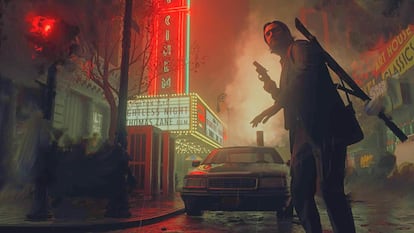
Overall, perhaps, gameplay and graphics, more in tune with technical advances, will welcome the passage of time. The second version of Horizon featured a larger, more vivid and immersive world than that of its predecessor. And the threat that ravaged A Plague Tale: Innocence becomes more daunting in its sequel, A Plague Tale: Requiem. However, creative and narrative talent is not only judged in pixels or possibilities with the controller in your hands. The FIFA or Call of Duty series have dominated the market with small tweaks on an annual basis. This can also condition the external public’s vision of the video game. And there are remasters that simply leave everything untouched, except for the aesthetics. The so-called “Complete Edition” of The Witcher 3 was nothing more than an “update,” according to the Financial Times. And Francisco points out that Grand Theft Auto: The Trilogy accumulated more bugs than new features.
Nevertheless, Matthew Gallant, director of The Last of Us Part II remaster, said he did not understand some of the “consternation” over the project. An analysis by the specialized outlet IGN provides some answers: “Ultimately, it’s money for new graphics. It’s hard not to imagine how interesting these games would have been if new and modern ideas had been properly applied to them.” Or if, instead of investing in them, developers would invest time and resources in generating unpublished intellectual properties. Although, the ideal reflection does not include the most essential element: money. “Criticizing this conservatism is easy from a distance but, from a strictly commercial point of view, it makes perfect sense, especially when we are talking about products that can cost hundreds of millions of [dollars] and that, to be profitable, have to sell many units,” explains Oliván.
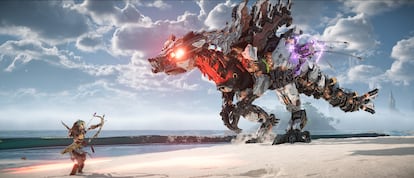
“Since the PlayStation 2, in the first decade of this century, each generation of consoles saw lower revenues, while graphical and game-world improvements became less and less revolutionary. Throw in the explosion of indie and mobile games, and the top studios turned to remakes, reboots and sequels to reduce the risk of a failed launch,” explains Logan Brown, professor at Indiana University, in the U.S., and author of a research paper on the subject. Thousands of recent layoffs at some of the sector’s leading developers cast a shadow over the economic landscape. And the sources consulted point to similarities with cinema: skyrocketing budgets, also in advertising, and growing competition (audiovisual platforms, social media, independent video games) have driven the industry into a “corner” of its own, according to Brown: “Since they cannot compete on innovation, they compete on labels with recognizable names.”
“Between the 1990s and the 2000s, the major studios also invested heavily in indie-style productions, dramas and mid-budget romantic comedies, but now they are focusing on blockbusters. It is close to what is happening with video games,” adds Ball. And he argues that, with so many similarities, many “also expect a similar outcome: that the public will start demanding different experiences.”
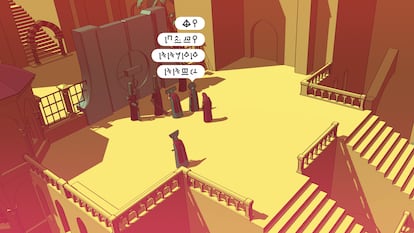
Indeed, this is already the case. Back in 2016, creator Fumito Ueda encouraged his colleagues to pursue their own path, instead of drawing inspiration “from movies or other media.” “You won’t enjoy video games if you work in a large studio,” Dave Oshry, the producer of Dusk, said recently. And creators like Karla Zimonja, Lucas Pope and Sam Barlow have been exploring the boundaries for years with titles like Gone Home, Return of Obra Dinn and Her Story. Ball adds recent titles such as Cocoon, Dave the Diver and Chants of Sennaar, while Francisco mentions Balatro. However, all of these are independent productions. With more risks, but less funding and greater instability. “The two main challenges for indie games are access to funding and visibility: more and more high-quality games are being published, but that makes it more difficult to stand out. It is this creative risk that can become a key element,” defends Oliván. Though Brown also stresses that the struggle to be seen is driving some independent companies to revise their approach to easier, more in-demand formulas.
This is where big and small industry converge. At the same time, the sources consulted highlight successful and painstaking remakes, such as Resident Evil 2, Yakuza Kiwami and the peculiar The Making of Karateka. “I question the idea that remakes and reboots imply less creativity. Even just the transfer of a video game to another platform requires a huge number of creative decisions that the public and the press may never see,” highlights Brown. Perhaps the recently released Final Fantasy VII Rebirth is the best example: it revives an old game, but its plot, gameplay and several internal dynamics are modified. Therefore, with so many labels, they haven’t succeeded in slapping any of them on it: no remake, no reboot, no remastering, no sequel. Or maybe all of this together. This is also a novelty in its own way.
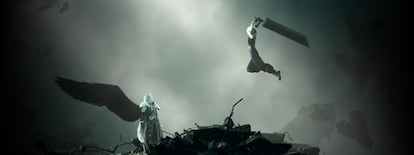
Sign up for our weekly newsletter to get more English-language news coverage from EL PAÍS USA Edition
Tu suscripción se está usando en otro dispositivo
¿Quieres añadir otro usuario a tu suscripción?
Si continúas leyendo en este dispositivo, no se podrá leer en el otro.
FlechaTu suscripción se está usando en otro dispositivo y solo puedes acceder a EL PAÍS desde un dispositivo a la vez.
Si quieres compartir tu cuenta, cambia tu suscripción a la modalidad Premium, así podrás añadir otro usuario. Cada uno accederá con su propia cuenta de email, lo que os permitirá personalizar vuestra experiencia en EL PAÍS.
¿Tienes una suscripción de empresa? Accede aquí para contratar más cuentas.
En el caso de no saber quién está usando tu cuenta, te recomendamos cambiar tu contraseña aquí.
Si decides continuar compartiendo tu cuenta, este mensaje se mostrará en tu dispositivo y en el de la otra persona que está usando tu cuenta de forma indefinida, afectando a tu experiencia de lectura. Puedes consultar aquí los términos y condiciones de la suscripción digital.









































